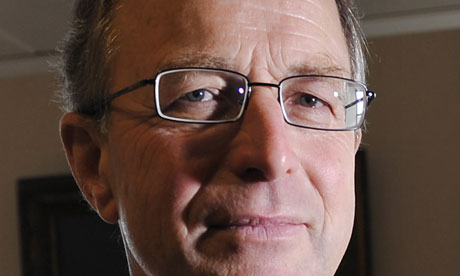Wednesday 11 May 2011 16.29 BST
- Article history

Serious intelligence failures meant British commanders were unprepared for the Taliban-led insurgency in Afghanistan as soldiers "turned up a hornets' nest", three of the country's most senior military officers have said.
General Sir David Richards, the chief of the defence staff, told MPs the British had got involved in a very serious situation, adding: "War is a bummer."
A failure of intelligence, notably about tribal loyalties and aggressive US operations, and ill-thought out attempts to eradicate the opium poppy harvest, combined to exacerbate an already dangerous situation facing the 3,000 British troops sent to Helmand by the Blair government in 2006, the officers said.
The huge problems then confronting British soldiers – the situation is much better now that about 11,000 are deployed in operations in a smaller area – were described by Richards, his deputy, General Sir Nick Houghton, and General Sir Peter Wall, the head of the army, in evidence to the Commons defence committee on Wednesday.
"It was very clear the British were going to get involved in a very difficult situation," Richards, then Nato's commander in Kabul, told the cross-party committee of MPs. He said: "War is a bummer. Politics and the enemy have a vote."
Richards, who had asked Britain and other countries to send more troops to southern Afghanistan, warned: "It is impossible just to chuck troops at the problem, because of the great duty of care".
Wall said: "I absolutely accept what we found when the forces arrived on the ground was starkly different from what we anticipated and had been hoping for."
He said British commanders did not expect the insurgency to be as "vehement" as it turned out to be, and told MPs it was clear there was a failure of intelligence.
Houghton, a widely respected general who, along with Richards, was interviewed by Cameron for the top military post, listed a number of problems that came together.
Britain's military commitment to Iraq was higher than it was anticipated it would still be in 2006, and British troops arrived in May, "the natural start of the fighting season".
The Taliban, at the time, encouraged the belief that foreign troops were out to eradicate the poppy harvest, a valuable source of income for local farmers. Some 200,000 labourers migrated from Pakistan to help with the poppy harvest, and some were happy to stay as "guns for hire".
Houghton added that US troops had just engaged in "particularly kinetic" [aggressive] military operations at the time.
Moreover, at the behest of President Hamid Karzai, British troops were deployed to forward "platoon houses" in northern Helmand areas such as Sangin and Musa Qala. The soldiers turned out to be dangerously exposed and too few in number.
Asked about the effect of Osama bin Laden's death on military operations in Afghanistan, Richards said it was too early to tell, but that it clearly had a psychological effect and possibly an effect on the ability of the insurgents to raise money.

No comments:
Post a Comment